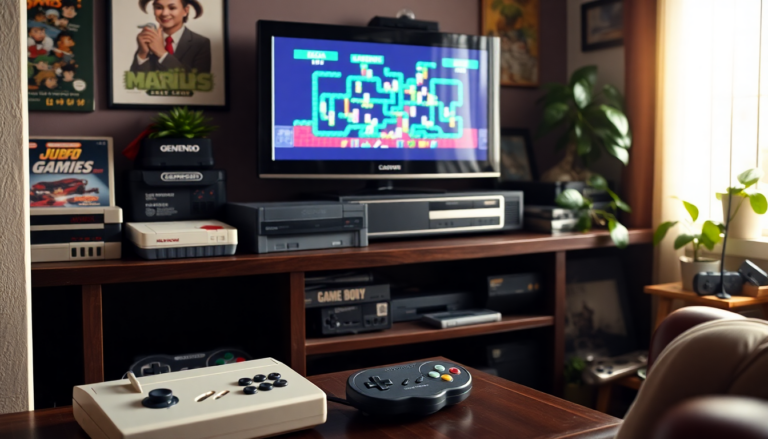Argomenti trattati
In today’s digital landscape, classic gaming consoles have found their sweet spot, charming both nostalgic enthusiasts and a new wave of gamers. These miniature replicas of legendary systems do more than simply trigger fond memories; they act as a bridge linking generations through the world of gaming. But what is it about these classic consoles that keeps them alive and kicking? This article dives into the various classic gaming consoles, their significance, and the reasons behind their lasting appeal in the market.
The Rise of Classic Consoles
Over the past decade, classic gaming consoles have experienced a remarkable revival. It all kicked off with the launch of mini versions of fan-favorite systems like the NES Classic Edition and the SNES Classic. These consoles come packed with pre-installed games, allowing players to relive the golden era of gaming without the hassle of hunting down original hardware and cartridges. Isn’t it great to have that convenience?
So, what’s driving this phenomenon? For starters, nostalgia plays a huge role. Gamers who grew up in the 80s and 90s are eager to share their childhood experiences with the younger crowd. Plus, the straightforward gameplay of these classic titles offers a refreshing contrast to the complexities of modern gaming, making them accessible and fun for all ages. This combination of factors has fueled a growing demand for retro systems, evident in the thriving market that surrounds them.
Iconic Consoles and Their Impact
When it comes to classic gaming consoles, the Super Nintendo Entertainment System (SNES) stands out as a fan favorite. Released in the early 90s, the SNES introduced gamers to timeless classics such as “Super Mario World” and “The Legend of Zelda: A Link to the Past.” Its influence on the gaming landscape is monumental, laying the groundwork for many design principles that still resonate today.
Let’s not forget the SEGA Genesis, known for its impressive library of fast-paced action games and sports titles. The 2019 launch of the SEGA Genesis Mini celebrated a significant milestone for the console, featuring 42 pre-loaded games and reigniting interest in SEGA’s rich history. Who doesn’t love a good throwback?
Meanwhile, the PlayStation Classic showcases iconic titles from the original PS1, illustrating how Sony’s entry into gaming shaped the industry. This console allows a new audience to experience the classics that defined gaming in the late 90s. Doesn’t it feel good to revisit those early adventures?
The Collectibility and Market Trends
The classic gaming console market isn’t just about playing games; it’s also a treasure trove for collectors. Many enthusiasts view these consoles as valuable collectibles, with limited editions often fetching eye-popping prices at auctions. For example, certain models of the NES or SNES can sell for hundreds or even thousands of dollars, depending on their condition and rarity. Can you imagine owning one of those gems?
The rise of online marketplaces and auction sites has only stoked this trend, making it easier for collectors to buy, sell, and trade retro gaming systems. Plus, specialized conventions and meetups have popped up, providing spaces for collectors to connect, swap tips, and showcase their prized possessions. It’s all about community and shared passion!
As the gaming landscape continues to evolve, the importance of classic consoles remains as strong as ever. They serve as a nostalgic reminder of the medium’s history and the joy gaming can bring, standing as a testament to the timeless allure of this beloved hobby. Isn’t it fascinating how these consoles can still spark joy across generations?

